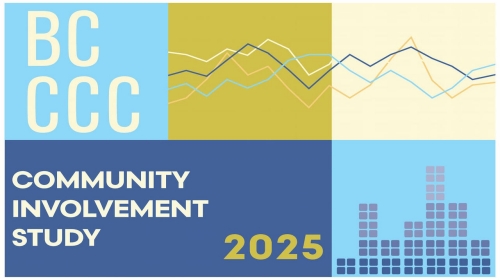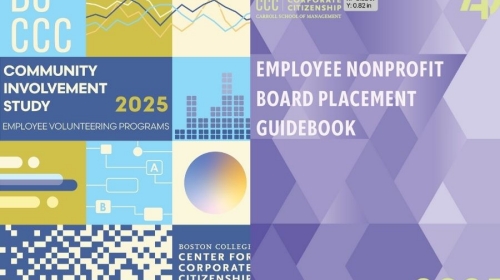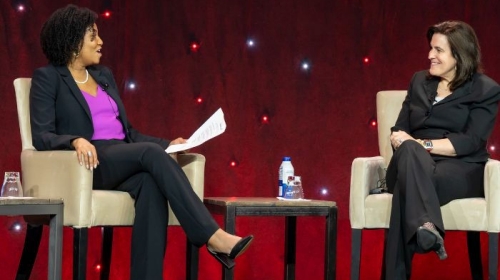The following is excerpted from Issue 20 of The Corporate Citizen. To learn more about how you can meet your corporate citizenship objectives by better managing your internal and external partnerships, consider joining us in Chicago on September 13-14 for our Corporate Citizenship Partnership Management course.
CVS Health, a Rhode Island-based pharmacy innovation company, is an industry leader committed to helping people on their path to better health and giving back to the communities in which it operates. The company’s high-profile decision in 2014 to stop selling tobacco products at its retail locations garnered nationwide attention, but it isn’t the only arena where CVS Health has demonstrated its ongoing commitment to corporate citizenship.
The company’s dedication to social and environmental responsibility is also demonstrated through its history of proactive and practical disaster relief initiatives. The company provides support to first responders and other community organizations during times of disaster, including product donations and financial support from the CVS Health Foundation. These efforts stabilize the communities in which it operates, enabling CVS Health and its employees to thrive.
“We are driven by a strong belief that our purpose is not just about social and environmental responsibility, but also a way to achieve our long-term growth plans and economic success,” said Eileen Howard Boone, senior vice president of corporate social responsibility and philanthropy at CVS Health.
Managing Prescription Needs and Donating Supplies
A storm or other weather-related event has the potential to create problems for patients who rely on CVS Health for prescriptions and other needs. Recognizing that a prompt, proactive response to severe weather is crucial to maintaining customer health and growing consumer trust, in October 2015 CVS Health partnered with the U.S. Department of Health and Human Services (DHHS) to run a weather alert for patients serviced by the 300 pharmacies within Hurricane Joaquin’s path. Within 36 hours of the alert’s issuance, more than 500,000 automated voice and text messages were delivered to those taking maintenance medications, reminding them to check their supplies, call their pharmacist, and/or visit their pharmacy before the storm intensified.
“Ensuring our patients have their medications available to them is one of our top priorities,” said Kevin Hourican, executive vice president of pharmacy services and supply chain at CVS Health.
The priority is an impactful one. Research published in a 2016 issue of JAMA Internal Medicine revealed that those who received CVS’s alert were 9 percent more likely to refill their medication(s) prior to the storm’s arrival than patients whose pharmacies conducted no such outreach.
“This research highlights how proactive outreach to patients before a natural disaster can encourage timely medication refills,” Hourican said, “which may help ensure continuity of care and avoid adverse health events due to inadequate medication supply.”
Given the nature and scope of its business, CVS Health is also poised to supply communities with the products needed most following a disaster, including basic hygiene and first aid kits. Following the widespread water contamination in Flint, Michigan, CVS Health’s response included supplying toiletries to Flint residents to assist recovery efforts.
“By providing essential hygiene and personal products to area residents, we’re fulfilling our company’s purpose of helping people on their path to better health,” said Boone.
Addressing the specific needs that can arise during emergencies and disasters is a key component of the support offered by CVS Health: While one situation may call for setting up mobile pharmacy trailers to fill prescriptions and offer supplies like paper towels and batteries, another may warrant waiving prescription copayments, delivering prescriptions to those unable to leave their homes, or staffing storm shelters with MinuteClinic nurse practitioners. By working with national, state, and local first responders and organizations such as the U.S. DHHS, the Red Cross, and the Salvation Army, CVS Health is able to carry out flexible, incident-specific responses in its ongoing relief and recovery efforts.
The CVS Health Employee Relief Fund
CVS Health knows that in order to carry out such ambitious initiatives, its workforce must be healthy and robust. The company offers support to employees who are impacted by crisis situations through the CVS Health Employee Relief Fund, which provides short-term, immediate financial relief to those affected by natural disasters or other unforeseen events. Launched with a donation from CVS Health, the fund has grown thanks to voluntary contributions made by CVS employees; since 2011, the fund has disbursed nearly $1.5 million to colleagues in need.
“The CVS Employee Relief Fund was created to support our own colleagues during times of unanticipated or unavoidable financial hardships—which could be related to military deployment, family deaths, natural disaster, or people losing their homes,” said David Casey, vice president of workforce strategies and chief diversity officer at CVS Health. “These are times when our employees are dealing with catastrophic events in their lives, and they need our support.”
Rachel Olson, who received Fund assistance after tragically losing her newborn baby, said that the CVS Employee Relief Fund was invaluable to her and her family. “CVS really does care about their colleagues,” said Olson. “They really take the time and effort to really make sure we’re doing the best we can for all of our colleagues.”
This sense of community is echoed by Edwin McGee, lead pharmacist technician, who received Fund assistance after his family lost their house to a fire. One of McGee’s major takeaways was the gratitude he felt to be a member of the CVS Health team: “It really made me feel proud—this is who I work for.”
Profiles of the CVS Health employees who have utilized the company’s Fund are understandably heartbreaking, but each of their stories also underscores the tremendous value both the recipients and the contributors place in the Fund’s ability to provide assistance.
Jeff Hardage said that in his role of senior advisor, human resources business partner, he sees how that the Fund acts as a conduit for spreading support and assistance: “One of the great things about the Employee Relief Fund is that when colleagues reach out to me, I have a way that I can help support them.”
Bringing people together to generate and disperse support creates a momentum and engagement that is felt at every level of the company. “It’s an opportunity for colleagues to help colleagues when they need it the most,” said Boone.






